CHIVVY for Class 7 ENGLISH
THEME
The poem 'Chivvy' is a catalogue of various do's and don'ts that the grown-ups dictate to young children. The adults constantly give a list of instructions to the children about how to sit, how to talk, how to eat and so on.
THEME
The poem 'Chivvy' is a catalogue of various do's and don'ts that the grown-ups dictate to young children. The adults constantly give a list of instructions to the children about how to sit, how to talk, how to eat and so on.
EXPLANATION
Kavita 'Chivvy' vibhin to do's aur dont's ki ek suchi hai jo adults chote bachon ko nirdeshit karte hai. Adults lagataar bachon ko nirdeshon (instructions) ki ek suchi dete rehte hai ki kaise baithna hai, kaise baat karna hai, kaise khana hai etc.
EXPLANATION
कविता 'चिव्वी' विभिन्न क्या करें और क्या न करें की एक सूची है जो वयस्क छोटे बच्चों को निर्देशित करते हैं। वयस्क (adults) लगातार बच्चों को निर्देशों की एक सूची देते रहते हैं कि कैसे बैठना है, कैसे बात करना है, कैसे खाना है आदि।
ABOUT THE AUTHOR
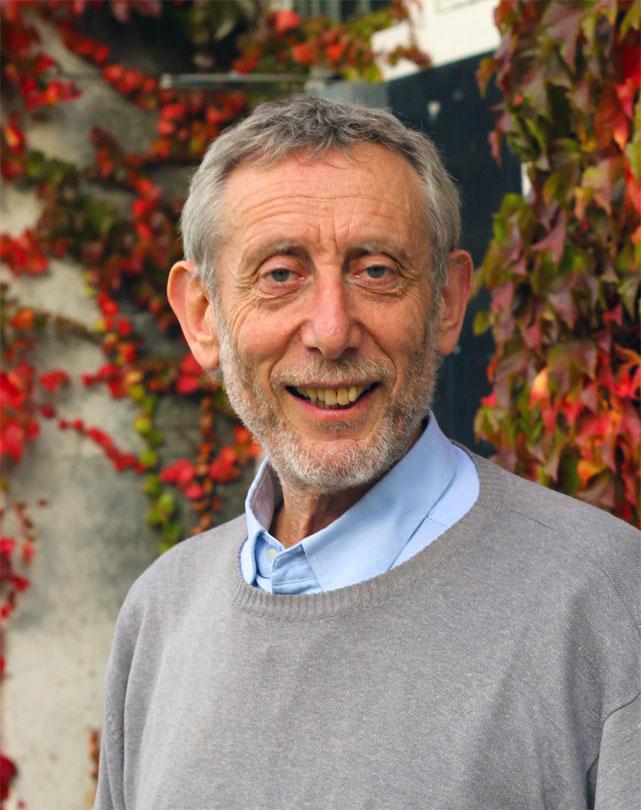
Michael Rosen was born in 1946 in North London. One of the best-known figures in the children's book world, he is renowned for his work as a poet, performer, broadcaster and scriptwriter. As an author and by selecting other writers' works for anthologies he has been involved with over 140 books.
ABOUT THE AUTHOR

Michael Rosen was born in 1946 in North London. One of the best-known figures in the children's book world, he is renowned for his work as a poet, performer, broadcaster and scriptwriter. As an author and by selecting other writers' works for anthologies he has been involved with over 140 books.
EXPLANATION
Michael Rosen ka janm 1946 mein North London mein hua tha. Bachon ki kitabo ki duniya mein sabse prasiddh shakhsiyaton mein se ek, vah ek kavi, kalakaar, prasarak aur patkatha lekhak ke roop mein apne kaam ke liye prasiddh hai. Ek lekhak ke roop mein aur anthologies ke liye anya lekhako ke karyo ka chayan karke ve 140 se adhik pustako se jude rahe hai.
EXPLANATION
माइकल रोसेन का जन्म 1946 में उत्तरी लंदन में हुआ था। बच्चों की किताबों की दुनिया में सबसे प्रसिद्ध शख्सियतों में से एक, वह एक कवि, कलाकार, प्रसारक और पटकथा लेखक के रूप में अपने काम के लिए प्रसिद्ध हैं। एक लेखक के रूप में और संकलन के लिए अन्य लेखकों के कार्यों का चयन करके वे 140 से अधिक पुस्तकों से जुड़े रहे हैं।
PARAGRAPH 1
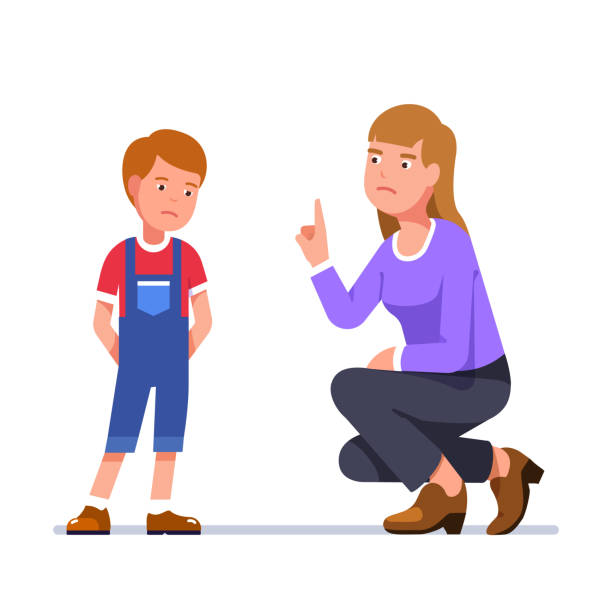
Grown-ups say things like:
Speak up
Don’t talk with your mouth full
Don’t stare
Don’t point
Don’t pick your nose
PARAGRAPH 1

Grown-ups say things like:
Speak up
Don’t talk with your mouth full
Don’t stare
Don’t point
Don’t pick your nose
IMPORTANT WORDS
Grown-ups: an adult person, वयस्क
Pick: to remove a small piece or pieces of something with your fingers, अँगुलियों से कुरेदना या खुरचना
Stare: to look at somebody or something for a long time because you are surprised, shocked, etc., (आश्चर्य, विक्षोभ आदि के कारण) किसी को देर तक देखते रहना; घूरना, टकटकी लगा कर देखना
Point: to show where something is or to draw attention to something using your finger, a stick, etc., अँगुली, छड़ी आदि से किसी वस्तु की स्थिति दिखाना या किसी की ओर लोगों का ध्यान आकृष्ट करना
IMPORTANT WORDS
Grown-ups: an adult person, वयस्क
Pick: to remove a small piece or pieces of something with your fingers, अँगुलियों से कुरेदना या खुरचना
Stare: to look at somebody or something for a long time because you are surprised, shocked, etc., (आश्चर्य, विक्षोभ आदि के कारण) किसी को देर तक देखते रहना; घूरना, टकटकी लगा कर देखना
Point: to show where something is or to draw attention to something using your finger, a stick, etc., अँगुली, छड़ी आदि से किसी वस्तु की स्थिति दिखाना या किसी की ओर लोगों का ध्यान आकृष्ट करना
EXPLANATION
Kavita ki shuruaat kavi ke parivaar ke bade logon (adults) ke nirdeshon se hoti hai. Ve usse kehte hain ki jab vah baat kar raha ho to zor se bole taaki sab usey sun paye. Ve use etiquettes sikhate hai aur usse kehte hain ki muh mein khaana rakh kar baat na kare yani khana khate hue baat na kare, logon ko na ghooren aur unki oor ungali se point na kare, aur na hi apni naak mein ungali daalein. Hamare saath bhi aisa hota hai jab hamare mata-pita hume yah sikhane ki koshish karte hain ki sahi tareeke se kaise vyavhar kiya jata hai.
EXPLANATION
कविता की शुरुआत कवि के परिवार के बड़े लोगों (वयस्कों) के निर्देशों से होती है। वे उससे कहते हैं कि जब वह बात कर रहा हो तो ज़ोर से बोलें ताकि सब उसे सुन पाए। वे उसे शिष्टाचार सिखाते हैं और उससे कहते हैं कि मुँह में भोजन लेकर बात न करें यानि खाना खाते हुए बात न करे, लोगों को न घूरें और उनकी ओर ऊँगली से पॉइंट न करे, और न ही अपनी नाक में ऊँगली डालें। हमारे साथ भी ऐसा होता है जब हमारे माता-पिता हमें यह सिखाने की कोशिश करते हैं कि सही तरीके से कैसे व्यवहार किया जाता है।
PARAGRAPH 2
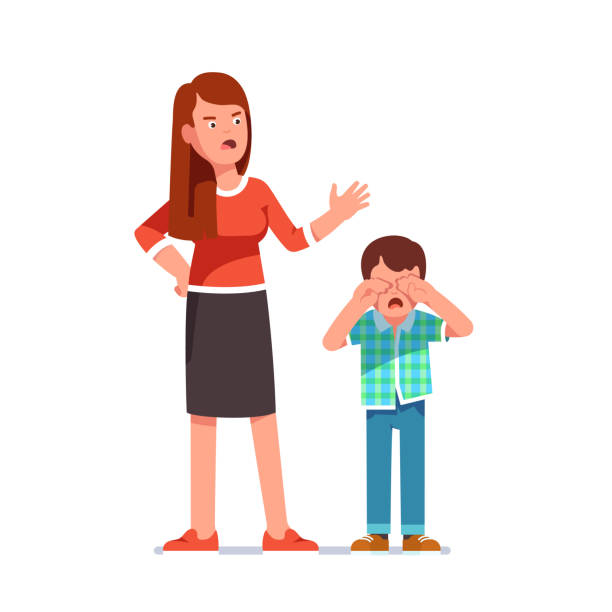
Sit up
Say please
Less noise
Shut the door behind you
Don’t drag your feet
Haven’t you got a hankie?
Take your hands out of your pockets
PARAGRAPH 2

Sit up
Say please
Less noise
Shut the door behind you
Don’t drag your feet
Haven’t you got a hankie?
Take your hands out of your pockets
IMPORTANT WORDS
Hankie: Handkerchief, रूमाल
Drag: to pull somebody/something along with difficulty, किसी वस्तु को ज़ोर लगाकर घसीटना
Please: used as a polite way of asking for something or telling somebody to do something, (किसी से विनम्र अनुरोध करने के लिए प्रयुक्त) कृपया
IMPORTANT WORDS
Hankie: Handkerchief, रूमाल
Drag: to pull somebody/something along with difficulty, किसी वस्तु को ज़ोर लगाकर घसीटना
Please: used as a polite way of asking for something or telling somebody to do something, (किसी से विनम्र अनुरोध करने के लिए प्रयुक्त) कृपया
EXPLANATION
Iss shlok mein hum dekhte hain ki adults lagatar bachon ko nirdesh dete hain. Kavi ke mata-pita use jhukkar baithne ki jagah seedha baithne ko kehte hain. Ve use kuch bhi maangte samay kripya (Please) ka upyog karne ke liye bhi kehte hain. Ve usse kehte hain ki kamre se bahar nikalte samay hamesha darwaza band kare aur chalte samay apne paer utha kar chale, bina chappal ki aawaz kare. Ve usse poochte hain ki kya vah hamesha apne saath ek hankie rakhta hai aur use jeb se haath bahar nikalne ke liye bhi kehte hai.
EXPLANATION
इस श्लोक में हम देखते हैं कि वयस्क लगातार बच्चों को निर्देश देते हैं। कवि के माता-पिता उसे झुककर बैठने की बजाए सीधा बैठने को कहते हैं। वे उसे कुछ भी माँगते समय 'कृपया' (Please) का उपयोग करने के लिए भी कहते हैं। वे उससे कहते हैं कि कमरे से बाहर निकलते समय हमेशा दरवाजा बंद करे और चलते समय अपने पैर उठाकर चले, बिना चप्पल की आवाज़ करे। वे उससे पूछते हैं कि क्या वह हमेशा अपने साथ एक रूमाल रखता है और उसे जेब से हाथ बाहर निकालने के लिए भी कहते है।
PARAGRAPH 3
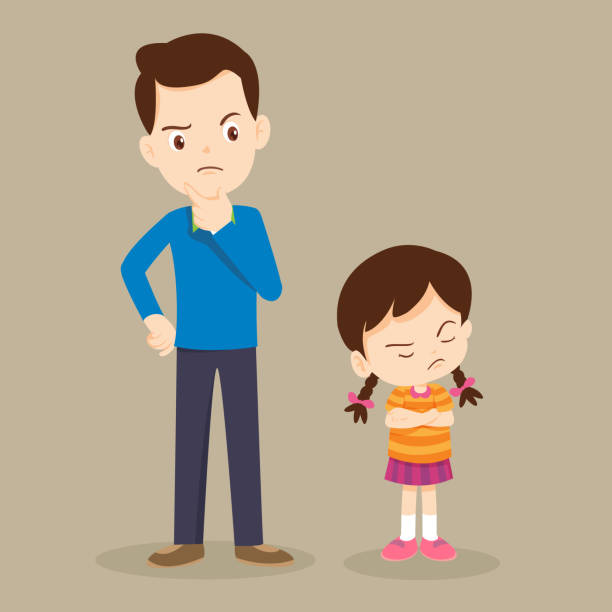
Pull your socks up
Stand up straight
Say thank you
Don’t interrupt
No one thinks you’re funny
Take your elbows off the table
PARAGRAPH 3

Pull your socks up
Stand up straight
Say thank you
Don’t interrupt
No one thinks you’re funny
Take your elbows off the table
IMPORTANT WORDS
Interrupt: to say or do something that makes somebody stop what he/she is saying or doing, कुछ करते या कहते हुए व्यक्ति को कुछ कह कर या कोई हरकत कर रोकना, टोकाटोकी करना, हस्तक्षेप करना
Elbows: the place where the bones of your arm join and your arm bends, कोहनी
IMPORTANT WORDS
Interrupt: to say or do something that makes somebody stop what he/she is saying or doing, कुछ करते या कहते हुए व्यक्ति को कुछ कह कर या कोई हरकत कर रोकना, टोकाटोकी करना, हस्तक्षेप करना
Elbows: the place where the bones of your arm join and your arm bends, कोहनी
EXPLANATION
Iss shlok mein adults use uske socks oopar kheechne aur seedhe khade hone ka nirdesh dete hain. Ve kehte hain ki jab use kuch diya jaye toh use logon ko dhanyavad kehna chahiye. Ve use nirdesh dete hain ki baat karte samay adults ko beech mein na roke kyunki koi nahi sochta ki ve mazakiya hai. Ve use table se apni elbows ko hatane ke liye bhi kehte hain kyunki yah ache table manners nahi mane jate hai.
EXPLANATION
इस श्लोक में वयस्क उसे उसके मोज़े ऊपर खींचने और सीधे खड़े होने का निर्देश देते हैं। वे कहते हैं कि जब उसे कुछ दिया जाए तो उसे लोगों को धन्यवाद कहना चाहिए। वे उसे निर्देश देते हैं कि बात करते समय वयस्कों को बीच में न रोकें क्योंकि कोई नहीं सोचता कि वे मजाकिया हैं। वे उसे टेबल से अपनी कोहनी को हटाने के लिए भी कहते हैं क्योंकि यह अच्छे टेबल मैनर्स नहीं माने जाते है।
PARAGRAPH 4
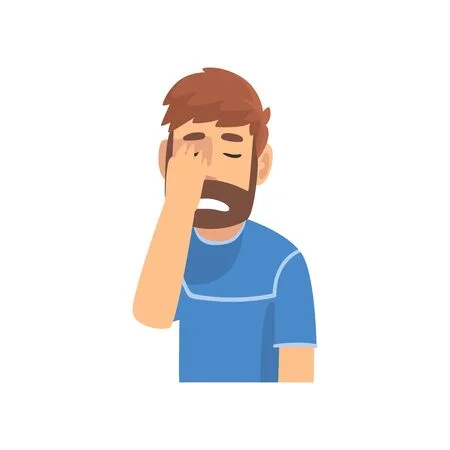
Can’t you make your own
mind up about anything?
PARAGRAPH 4

Can’t you make your own
mind up about anything?
EXPLANATION
Ant mein, kyunki bache bahut chanchal aur shararat hote hain, Adults poochte hain ki kya aisa kuch hai jiske bare mein ve apna mann bana sakte hain aur uss par tike reh sakte hai.
EXPLANATION
अंत में, क्योंकि बच्चे बहुत चंचल दिमाग वाले होते हैं, वयस्क पूछते हैं कि क्या ऐसा कुछ है जिसके बारे में वे अपना मन बना सकते हैं और उस पर टिके रह सकते हैं।
SUMMARY
SUMMARY
EXPLANATION
EXPLANATION
POETIC DEVICES
1. Anaphora: Anaphora is the repetition of words or phrases in a group of sentences, clauses, or poetic lines.
For example: Repetition of the word 'Don't' at the start of lines 2, 3, 4 and 5.
2. Alliteration: Alliteration is when two or more words that start with the same sound are used repeatedly in a phrase or a sentence.
For example: Repetition of 'd' sound in 'don't' and 'drag'.
Repetition of the 'h' sound in 'haven't' and 'hankie'.
Repetition of 's' sound in 'stand' and 'straight'.
Repetition of 'y' sound in 'you' and 'your'.
3. Enjambment: Enjambment is the continuation of a sentence or clause across a line break.
For example: Continuation of line 7 into line 8 without any punctuation.
POETIC DEVICES
1. Anaphora: Anaphora is the repetition of words or phrases in a group of sentences, clauses, or poetic lines.
For example: Repetition of the word 'Don't' at the start of lines 2, 3, 4 and 5.
2. Alliteration: Alliteration is when two or more words that start with the same sound are used repeatedly in a phrase or a sentence.
For example: Repetition of 'd' sound in 'don't' and 'drag'.
Repetition of the 'h' sound in 'haven't' and 'hankie'.
Repetition of 's' sound in 'stand' and 'straight'.
Repetition of 'y' sound in 'you' and 'your'.
3. Enjambment: Enjambment is the continuation of a sentence or clause across a line break.
For example: Continuation of line 7 into line 8 without any punctuation.
QUESTION ANSWERS
1. Discuss these questions in small groups before you answer them.
(i) When is a grown-up likely to say this?
Don’t talk with your mouth full.
Answer: Grown-ups are likely to tell children not to speak while their mouths are full with food.
(ii) When are you likely to be told this?
Say thank you.
Answer: The children are likely to be reminded to say ‘Thank you’ when they receive a gift or a favor from someone.
(iii) When do you think an adult would say this?
No one thinks you are funny.
Answer: When children are too afraid to talk or perform in front of others, adults are inclined to tell them that "no one thinks you are funny."
2. The last two lines of the poem are not prohibitions or instructions. What is the adult now asking the child to do? Do you think the poet is suggesting that this is unreasonable? Why?
Answer: The adult is now asking the child to think independently. Yes, the poet is suggesting that this is unreasonable because the young child has not been trained to use his mind. He has only been trained to follow the instructions given to him by the adults.
3. Why do you think grown-ups say the kind of things mentioned in the poem? Is it important that they teach children good manners, and how to behave in public?
Answer: The adults constantly give instructions to their children for various reasons. They try to train them to behave in a decent, well-mannered and sophisticated manner. Yes, it is important to teach the children all these things so that they learn good manners and how to behave in the society, at home and with their elders and youngsters. This, however, robs away their childlike innocence.
4. If you had to make some rules for grown-ups to follow, what would you say? Make at least five such rules. Arrange the lines as in a poem.
Answer: Ask us about our day and spend time with us. Keep the neighborhood clean. Don’t talk over the phone while eating. Respect elders and youngsters too.
QUESTION ANSWERS
1. Discuss these questions in small groups before you answer them.
(i) When is a grown-up likely to say this?
Don’t talk with your mouth full.
Answer: Grown-ups are likely to tell children not to speak while their mouths are full with food.
(ii) When are you likely to be told this?
Say thank you.
Answer: The children are likely to be reminded to say ‘Thank you’ when they receive a gift or a favor from someone.
(iii) When do you think an adult would say this?
No one thinks you are funny.
Answer: When children are too afraid to talk or perform in front of others, adults are inclined to tell them that "no one thinks you are funny."
2. The last two lines of the poem are not prohibitions or instructions. What is the adult now asking the child to do? Do you think the poet is suggesting that this is unreasonable? Why?
Answer: The adult is now asking the child to think independently. Yes, the poet is suggesting that this is unreasonable because the young child has not been trained to use his mind. He has only been trained to follow the instructions given to him by the adults.
3. Why do you think grown-ups say the kind of things mentioned in the poem? Is it important that they teach children good manners, and how to behave in public?
Answer: The adults constantly give instructions to their children for various reasons. They try to train them to behave in a decent, well-mannered and sophisticated manner. Yes, it is important to teach the children all these things so that they learn good manners and how to behave in the society, at home and with their elders and youngsters. This, however, robs away their childlike innocence.
4. If you had to make some rules for grown-ups to follow, what would you say? Make at least five such rules. Arrange the lines as in a poem.
Answer: Ask us about our day and spend time with us. Keep the neighborhood clean. Don’t talk over the phone while eating. Respect elders and youngsters too.
GLOSSARY
Grown-ups: an adult person, वयस्क
Pick: to remove a small piece or pieces of something with your fingers, अँगुलियों से कुरेदना या खुरचना
Stare: to look at somebody or something for a long time because you are surprised, shocked, etc., (आश्चर्य, विक्षोभ आदि के कारण) किसी को देर तक देखते रहना; घूरना, टकटकी लगा कर देखना
Point: to show where something is or to draw attention to something using your finger, a stick, etc., अँगुली, छड़ी आदि से किसी वस्तु की स्थिति दिखाना या किसी की ओर लोगों का ध्यान आकृष्ट करना
Hankie: Handkerchief, रूमाल
Drag: to pull somebody/something along with difficulty, किसी वस्तु को ज़ोर लगाकर घसीटना
Please: used as a polite way of asking for something or telling somebody to do something, (किसी से विनम्र अनुरोध करने के लिए प्रयुक्त) कृपया
Interrupt: to say or do something that makes somebody stop what he/she is saying or doing, कुछ करते या कहते हुए व्यक्ति को कुछ कह कर या कोई हरकत कर रोकना, टोकाटोकी करना, हस्तक्षेप करना
Elbows: the place where the bones of your arm join and your arm bends, कोहनी
GLOSSARY
Grown-ups: an adult person, वयस्क
Pick: to remove a small piece or pieces of something with your fingers, अँगुलियों से कुरेदना या खुरचना
Stare: to look at somebody or something for a long time because you are surprised, shocked, etc., (आश्चर्य, विक्षोभ आदि के कारण) किसी को देर तक देखते रहना; घूरना, टकटकी लगा कर देखना
Point: to show where something is or to draw attention to something using your finger, a stick, etc., अँगुली, छड़ी आदि से किसी वस्तु की स्थिति दिखाना या किसी की ओर लोगों का ध्यान आकृष्ट करना
Hankie: Handkerchief, रूमाल
Drag: to pull somebody/something along with difficulty, किसी वस्तु को ज़ोर लगाकर घसीटना
Please: used as a polite way of asking for something or telling somebody to do something, (किसी से विनम्र अनुरोध करने के लिए प्रयुक्त) कृपया
Interrupt: to say or do something that makes somebody stop what he/she is saying or doing, कुछ करते या कहते हुए व्यक्ति को कुछ कह कर या कोई हरकत कर रोकना, टोकाटोकी करना, हस्तक्षेप करना
Elbows: the place where the bones of your arm join and your arm bends, कोहनी